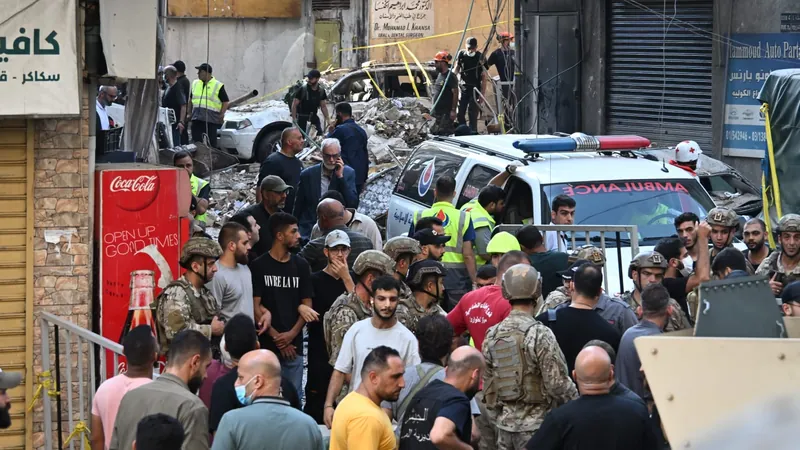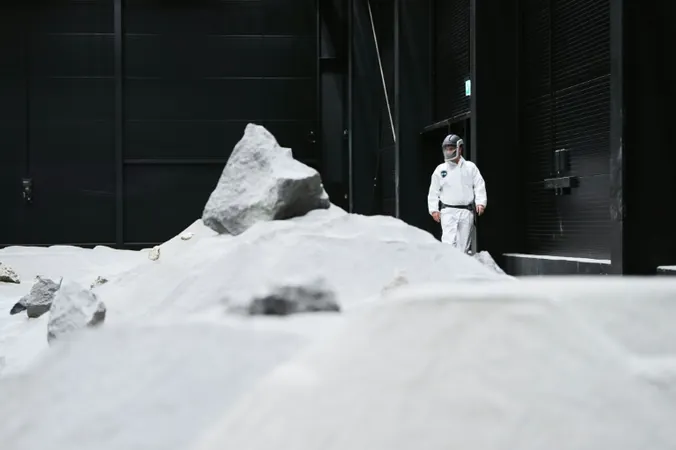
Explosive Escalation: Iran Signals Potential Military Involvement as Israel-Hezbollah Conflict Intensifies
2024-09-24
Explosive Escalation: Iran Signals Potential Military Involvement as Israel-Hezbollah Conflict Intensifies
In a shocking turn of events, the ongoing conflict between Israel and Hezbollah has escalated dramatically, sparking fears of a broader regional war. Israeli airstrikes in Lebanon on Monday resulted in a devastating death toll of over 500 people, with tragic scenes unfolding across the country. Just a day later, six additional fatalities were reported following an Israeli air raid on a Hezbollah commander in Beirut, as the Iran-backed group retaliated with rocket barrages targeting northern Israeli military installations.
The violence raises alarm bells not only for Israel and Hezbollah but also for the United States and Iran, as the situation threatens to spiral out of control. The conflict comes on the heels of nearly a year of clashes between Israel and Hamas in Gaza—another Iranian ally—which has left the region in turmoil.
In a recent interview, Iranian President Masoud Pezeshkian indicated that Iran may be ready to back Hezbollah more aggressively. He emphasized the need for Islamic nations to unite and formulate a decisive response to the Israeli airstrikes, asserting, “We cannot let Lebanon become another Gaza at the hands of Israel.
He expressed concerns about Hezbollah's ability to stand alone against an Israel that is receiving significant military support from Western allies, including the United States.
This sentiment was echoed by Jake Sullivan, national security adviser to President Biden, who acknowledged that the U.S. has experienced heightened anxiety regarding the potential for a widespread conflict. Sullivan revealed that the situation appeared particularly precarious following Hamas's attack on October 7, and again in April when Iran attempted missile strikes. Despite this, he remained optimistic about the possibility of diplomatic solutions to de-escalate tensions, particularly along the Israel-Lebanon border.
Unfortunately, diplomatic efforts have so far failed to quell the violence. The recent airstrikes on Lebanon represent the deadliest day for the country since the 2006 Israel-Hezbollah war, leaving nearly 2,000 people injured and tens of thousands fleeing their homes in search of refuge. The Israeli bombardment appears to be in retaliation for a series of serious security breaches allegedly orchestrated by Hezbollah, culminating in an unprecedented attack that the group has blamed on Israeli operatives.
As the situation continues to develop, the world watches with bated breath, anticipating whether Iran will indeed choose to intervene militarily. Will this conflict trigger a wider war in the Middle East? Only time will tell—but the signs are troubling, and the stakes have never been higher.




 Brasil (PT)
Brasil (PT)
 Canada (EN)
Canada (EN)
 Chile (ES)
Chile (ES)
 España (ES)
España (ES)
 France (FR)
France (FR)
 Hong Kong (EN)
Hong Kong (EN)
 Italia (IT)
Italia (IT)
 日本 (JA)
日本 (JA)
 Magyarország (HU)
Magyarország (HU)
 Norge (NO)
Norge (NO)
 Polska (PL)
Polska (PL)
 Schweiz (DE)
Schweiz (DE)
 Singapore (EN)
Singapore (EN)
 Sverige (SV)
Sverige (SV)
 Suomi (FI)
Suomi (FI)
 Türkiye (TR)
Türkiye (TR)